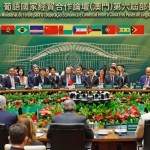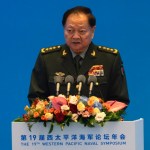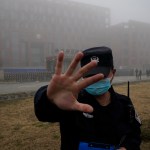Analysis by Leanda Lee*
umans can be odd. There is a whole range of theories about what motivates individuals and groups to act in certain ways. One would reckon a few theories would suffice but incentives come in many forms and the way we value the outcomes is determined by a range of group norms, cultural factors and value-laden concerns and preferences specific to individuals.
In the late 90s, it was fashionable in human resources to provide flexi-hours. This was nothing like working from home during and since Covid-19, but then the technology was not available to support such work or for the monitoring and measurement of on-line productivity. One of the largest retailers on earth had implemented core working hours from 10am to 3pm at their head office during which time everyone was to be in the workplace. Beyond those hours, provided staff were at work 8 hours a day, they could come and go freely. It was a dismal failure. Employees were still turning up to work at 7am or leaving way after 7pm, not taking advantage of the program regardless of the pressures they had said they felt from a lack of work-life balance.
We sent a team in to investigate. Staff said they gratefully perceived the organizational support, but two big hurdles gradually revealed themselves. Some senior managers regularly worked until very late and would have conversations with their staff at that time which anecdotally led to desirable projects and promotions being allocated to the staff who stayed back. Then, there was the car park. Some of it was under cover and sealed, other spaces a long walk away were graveled – dusty on hot days or muddy on rainy ones. The early risers got the good parking spots; pure logistics (and maybe high heels!) brought people to work early. Authorities might believe they put valid incentives in place, but there are hidden hurdles.
Macau residents and businesses have been known to have a lackluster response to opportunities made available in Hengqin. There are lessons here for integration into the Greater Bay Area. Not all great ideas are great for everyone. There are the enticements, and eventually stronger directives, but between these lie an appreciation for existing structural hurdles to achieve desired outcomes. This is where we currently appear to be moving in the incentivization of people towards GBA integration.
There is a news article on the Social Security Fund website reported upon in The Times which suggests that while residents are encouraged to study, work, run businesses and live in other areas of the GBA, there was a structural disincentive in place against Macau residents moving to the Guangdong-Macao In-Depth cooperation zone in Hengqin. Regulations stipulate that residents need to be in Macau for at least 183 days a year to access their rights and interests under the two-tier social security system. From 1 March 2023, upon application, time in the Hengqin Cooperation Zone can be deemed to be time in Macau for these purposes. Another hurdle removed.
In another realm, obstacles to the development of Macau’s telecommunications industry as part of the GBA integration policy were raised by Rui Marcelo, Vice President, General Assembly – Macau Communications Development Association, in these pages last week. He said the adoption of new ICT legislation would create certainties which would encourage investment in infrastructure such as high-capacity fixed networks, fair competition, security and safeguards for both industry and users around how new technologies can be implemented. This would help create an active and innovative hub.
Uncertainty slows innovation and development, unless the returns by far outweigh the risks as seen in the gaming industry, but that is not the normal state of play. Local authorities will need to ensure key development industries are offered a clear runway with obstacles removed and not just the promise of blue skies. Structural and institutional certainty and a clarity of vision will help clear the way for new investors and SME entrepreneurs alike.
The recent announcements at the 14th National Committee of the Chinese People’s Political Consultative Conference for continued consultations, discussions, exploration and recommendations for economic and social development of the GBA are critical promises that we will eventually experience integrative mechanisms. Removal of physical barriers and ease of travel, however, between Macau, Hengqin and other areas in the GBA is a base level of convenience required for human interaction, social and community development and business coordination, not to mention access to larger markets for businesses on all sides. Mobility of goods and services, human movement and interaction are all tangible signs to the population that integration is happening, that it has momentum and is coming to fruition. Each time another permit scheme is implemented these messages are bolstered and confidence improves. Examples can be found in the recent northbound travel program for private Hong Kong vehicles, and the seamless integration between Macau and Hengqin’s Intensive Cooperation Zone recently strengthened by the tax-free status of goods from Macau. The inclusion of parcels and luggage in this mix speaks to the goals of normalization of life for Macau residents relocating there: more incentives for real people without barriers.
Impediments will continue to come to light. For instance, not all Macau residents are yet equal under these schemes. This might result in Macau employers hesitating when hiring for cross-border enterprises as the pool of skilled labour they can hire from will be restricted to a subset of the local workforce. Employers may be inadvertently forced to discriminate against those Macau residents not offered full and equal access to the GBA. Systems’ change is complex but with careful monitoring these and other impediments will be ironed out before inequities and unintended consequences become entrenched.
































